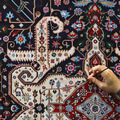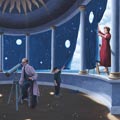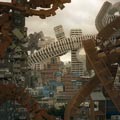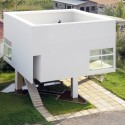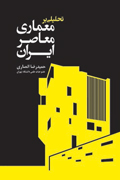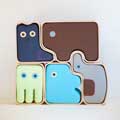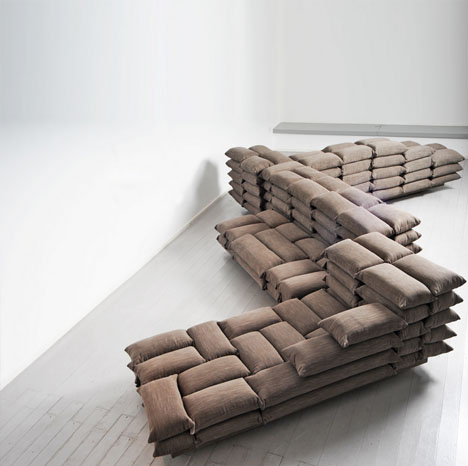
From ammunition boxes to steel I-beams, recycled scrap and industrial materials are just one side of these unique furnishings – extruded aluminum, wood and wool are also employed to make points about a world of uncertainty (particularly in regions of military danger and political instability).
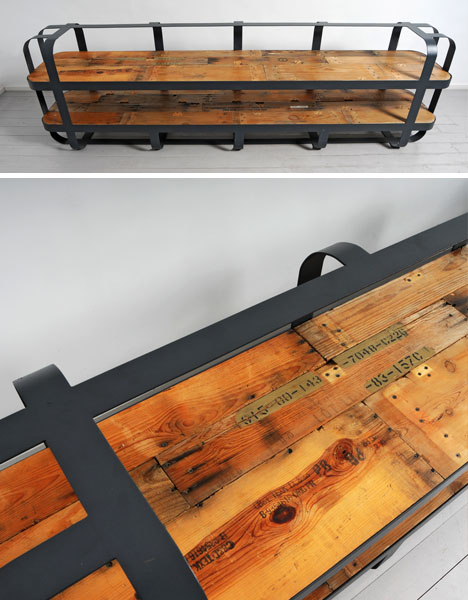
Israeli born-and-raised creator Ezri Tarazi is a professor as well as a designer, and his work shows this split focus on both theory and practice. There is a deeper point, for instance, underlying the idea for an extruded map of Baghdad back in 2003 … or, more recently, building sofas out of abstracted sandbags.
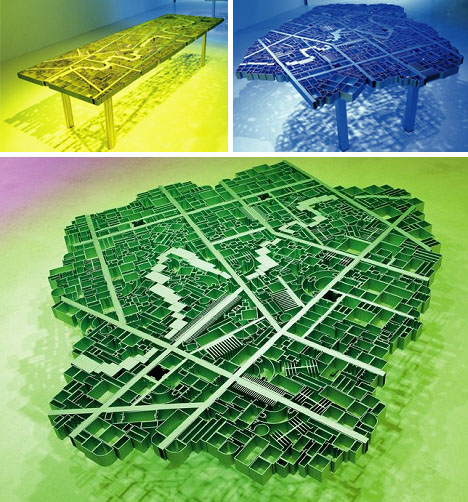
The focus should not be surprising – even before the recent changes in Libya and Egypt, army, terrorist and other threats abound in the this oft-dangerous portion of our planet. A little like our own media-filtered understanding of global events (from rebellions and revolutions to tsunamis and nuclear disasters), the objects are often displayed in crisp, clean, white contexts.
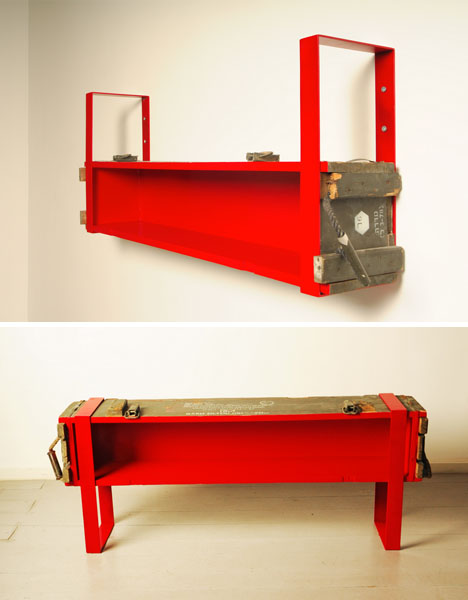
Or, to look at it another way: they bring catastrophes right into your living room, forcing you to confront the fallout at least on a conceptual level through actual (literally) war-torn materials.
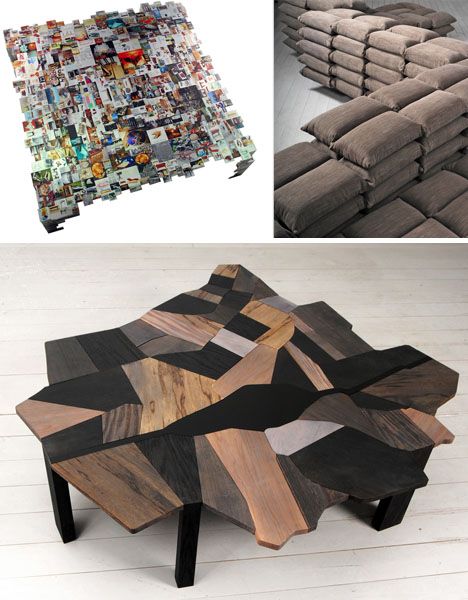
But to look too much at the meaning or intention on either side would be misleading, regardless of the interpretation. As stand-alone pieces or as part of a series, the works themselves are compelling composites, whether collaged from photographs, hand-stitched from cotton and wool or cut and assembled from scraps of wood.




